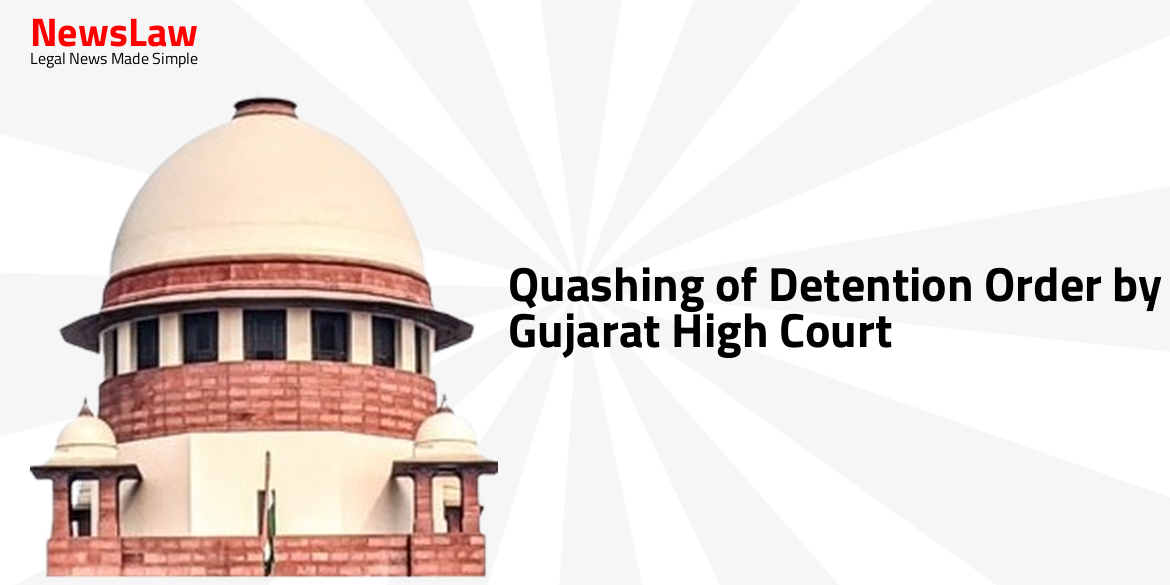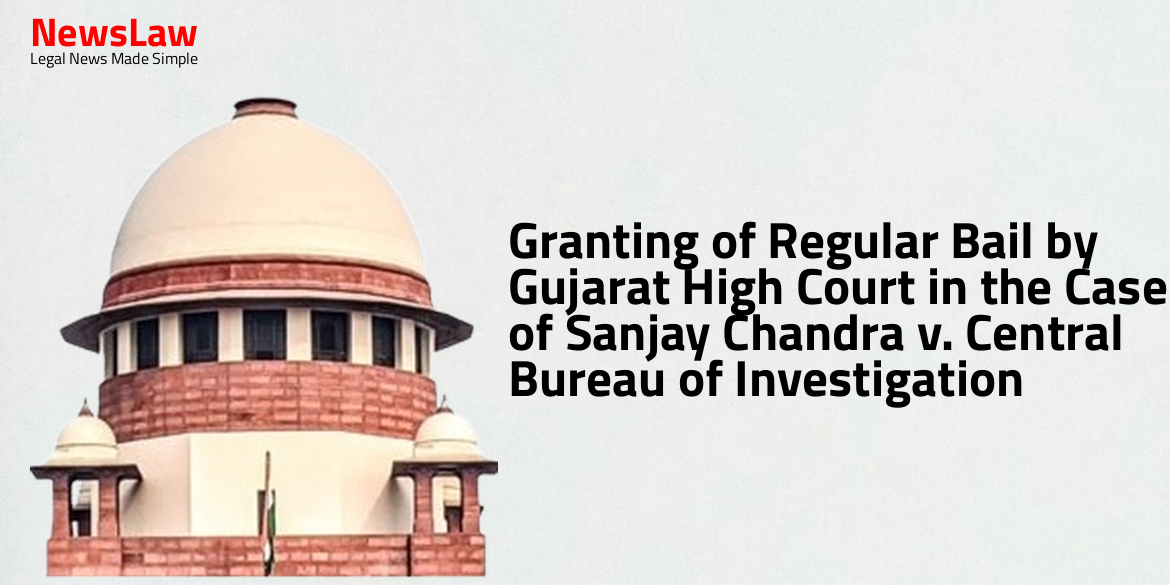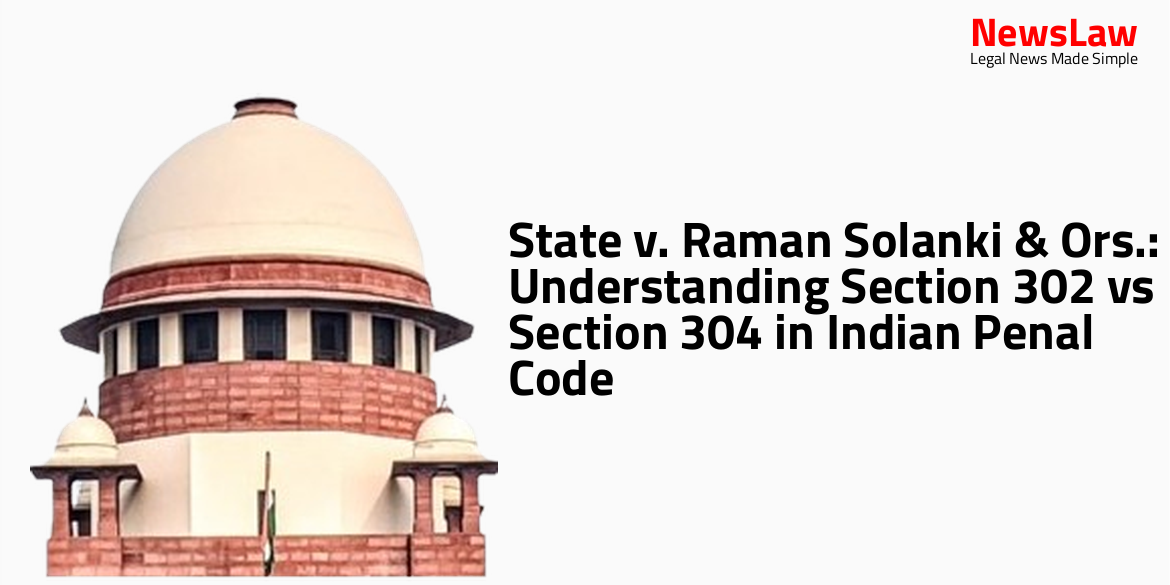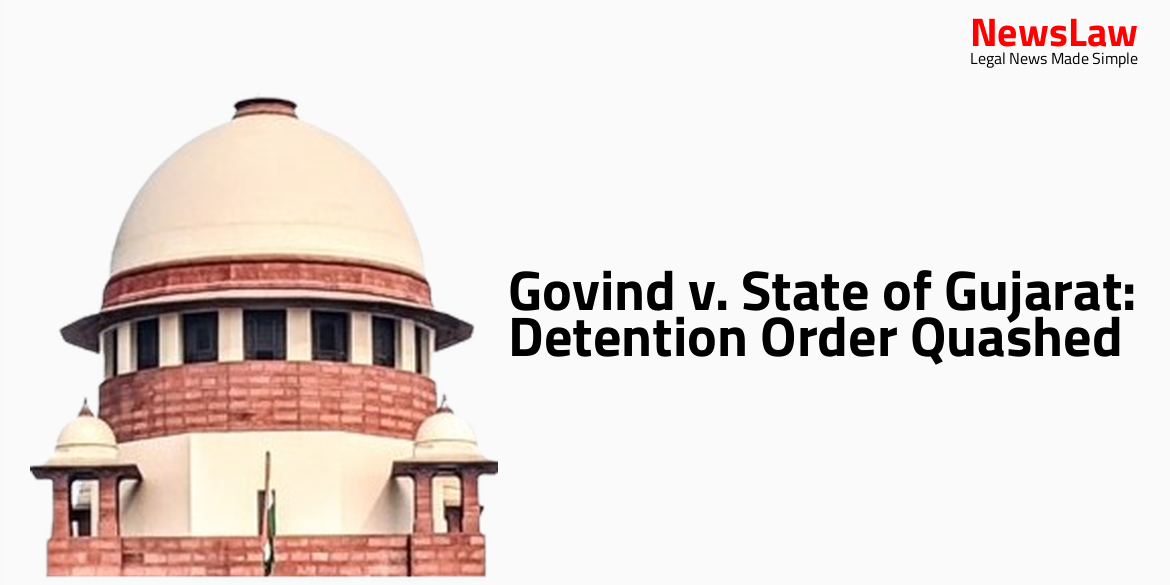In a significant ruling, the Gujarat High Court has issued a judgement regarding the quashing of the detention order in a case involving the detenue and the detaining authority. The court’s decision emphasizes the importance of due process and individual liberties in legal proceedings. This judgement marks a pivotal moment in the ongoing discourse surrounding preventive detention laws and the protection of civil rights.
Facts
- Witness statements were not sufficient to establish connection of detenue with breach of public order.
- Only relevant materials were FIR, Panchnama, and statements of witnesses.
- No cogent evidence linking detenue with alleged anti-social activity.
Arguments
- FIRs against the petitioner under Chapter-16 and 17 of IPC indicate a dangerous person status.
- Supporting evidence such as panchnama drawing considered by detaining authority.
- Detaining authority mentioned petitioner’s confession to offences in the order of detention.
- Petitioner’s activities not seen as causing significant disruption to public order.
- Offences related to bodily injuries to private individuals, not breaching public order.
- Detaining authority had the option to cancel petitioner’s bail instead of resorting to detention.
Analysis
- The detaining authority did not consider the fact that the appellant detenu was released on bail in both cases at the time of passing the preventive detention order.
- The detention order did not reflect a consideration of canceling bail as an alternative to prevent the activities of the petitioner.
- The court noted a lack of application of mind by the Detaining Authority in considering the option of canceling bail.
- There was a considerable delay of almost five months in passing the order of preventive detention without a satisfactory explanation.
- The purpose and object of preventive detention were not adequately demonstrated with specific evidence of the detenue posing a danger to public order.
- The detenue’s involvement in offences against private individuals and release on bail raised questions on the necessity of preventive detention.
- The offences alleged in the FIR/s do not impact public order as required under the Act.
- Other relevant penal laws are deemed sufficient to address the situation.
- Allegations against the detenue are not considered relevant for the definition of section 2(c) of the Act.
- For a person to be detained under the Act, there must be evidence that they pose a threat to society, causing disturbance to societal order and putting all social structures at risk.
- Without such evidence, it cannot be concluded that the detenue falls under section 2(c) of the Act.
- Unreasonable delay between the date of the order of detention and actual arrest of the detenu casts doubt on the genuineness of the detaining authority’s satisfaction in passing the detention order.
- Delay in passing the order of detention from the date of proposal can vitiate the ‘live and proximate link’ between grounds of detention and the purpose of detention.
- Indifference in passing the order of detention promptly after receiving the proposal indicates laxity on the part of the detaining authority.
- Delay of approximately one and a half months in passing the detention order after bail was granted to the petitioner in the second offence was noted by the Court.
- Delay in explaining the reasons for detention order can invalidate the subjective satisfaction of the detaining authority.
- Seeking shelter under preventive detention laws may not be appropriate if other legal remedies are available in the circumstances of the case.
- Preventive detention is aimed at protecting society by intercepting actions before they occur, not punishing individuals for past actions.
- Vigilance is crucial in passing and executing detention orders promptly to ensure the effectiveness of preventive action and to prevent delays from rendering the detention order ineffective.
- Unreasonable and unexplained delay in securing and detaining the individual after passing the detention order can vitiate the entire detention proceedings.
- Assault or injury to specific persons does not necessarily constitute public disorder, there must be an impact on the community or public at large to qualify as affecting public order.
- Delay in explaining the delay of release of the defendant was not addressed or explained in any manner.
- High Court did not provide any finding on the argument raised regarding the delay in the case.
- There is no direct connection between the two offences committed by the defendant; one on 20.05.2022 and the other on 06.09.2023, as the defendant was released on different dates for each offence.
Decision
- The petition is allowed due to the lack of nexus between the registration of FIRs and the breach of public order.
- The authority cannot use the Act to detain the individual without relevant and cogent material.
- The impugned order of detention dated 02.11.2023 is quashed and set aside.
- The detenue is to be released immediately unless needed in another case.
Case Title: CHEHORBHAI TEJABHAI DESAI Vs. STATE OF GUJARAT
Case Number: R/SCA/20237/2023



